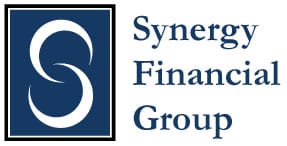When you take out a mortgage to purchase a property, your monthly payment often covers more than the loan’s principal and interest. You may be allocating part of it toward an escrow account. If you’re scratching your head and wondering what an escrow account is, you’re not alone.
An escrow account is a separate account that your mortgage lender establishes to manage ongoing payments to cover your homeowners insurance, property taxes, and even private mortgage insurance. While you can pay these bills in lump-sums once or twice a year, having an escrow account allows you to break up your payments into smaller, more manageable installments.
Make monthly contributions: Your lender will give you an estimate of what your annual property taxes and insurance premiums may be and then divide the total by 12. Typically, escrow accounts are set up by the lender on your behalf. You should add this amount to your monthly mortgage payment and deposit it directly into your escrow account.
Automatically pay your bills: When it’s time to pay your insurance premiums and property taxes, your lender will use the funds you’ve set aside in your escrow account to pay them on your behalf.
Review your annual assessment: Every year, your lender will review your escrow account to make adjustments for fluctuating tax rates and insurance costs. This means your monthly escrow payments may increase or decrease from one year to the next.
Let’s take a look at some of the benefits of contributing to an escrow account:
Reduce stress and simplify your budget: Depending on where you live, property taxes and insurance costs can be hefty expenses to pay for all at once. By spreading these costs out over the course of 12 months, you can avoid paying a large lump-sum.
Streamline payments to make sure they’re on time, every time: When it comes to paying your taxes and insurance, being on time is key. Late or missed payments can lead to penalties, liens, and even foreclosure. Establishing an escrow account can protect you by automating payment and ensuring you have the funds available when you need them.
Protect your property: Your home is an investment. Maintaining your property taxes and keeping your insurance up to date ensures you remain compliant with your mortgage agreement and safeguards your property.
While you may be able to opt out of having an escrow account, especially with a down payment of at least 20%, it’s important to consider the pros and cons. Without an escrow account, your monthly payments may be lower, but you’ll be responsible for paying for your insurance, taxes, and PMI on time. Whether your lender opens an escrow account for you or not, familiarizing yourself with how escrow works can help you anticipate changes to your mortgage payments and help you prepare for the financial responsibilities of home ownership.
Sources: Newsweek.com, Investopedia.com. Illustration: Vecteezy
We are ready to help you find the best possible mortgage solution for your situation. Contact Sheila Siegel at Synergy Financial Group today.







